“I was part of a session for people who had been a little bit big in the 1990s,” says Amelia Fletcher. “It was a discussion session at an indie pop festival, and all the others except for me had all had chart hits, and at least two of them had been on major labels, and they were saying that it was awful, absolutely awful because once you have been on a major label and had a chart hit expectations change, Then if your next single only gets to no. 6 then that is a disaster, and everyone tells you that are you are terrible, and I was thinking that even if I had got to no. 56 I would have considered that an achievement. There is something quite nice about being successful enough so that people are still interested in you, but at the same time always feeling that you can do better.” Amelia Fletcher and her long-term musical partner and husband Rob Pursey have played together in a variety of just under the commercial radar groups including Talulah Gosh, Heavenly, Marine Research and Tender Trap since the late 1980s. Their latest project The Catenary Wires breaks new ground for them both and takes them away from their indie pop roots. Triggered after they moved from South London to the rural Kent coast, The Catenary Wires was initially formed by Fletcher and Purseu as an acoustic duo, and saw Pursey, who had never sung before on record, joining Fletcher on co-lead vocals. The Catenary Wires’ first two albums, ‘Red, Red Skies’ (2105) and ‘Til The Morning’, were recorded largely as a two-piece, but their third album ‘Birling Gap’, which was released on Pursey and Fletcher’s new Skep Wax label in June, finds them expanded to a five-piece, and also featuring Andy Lewis who has also produced the album on bass, Fay Hallam on keyboards and backing vocals and Ian Button on drums. ‘Birling Gap’ is richly melodic and harmonic, and, named after a local beauty spot and clifftop a few miles from Fletcher and Pursey’s home that overlooks the English Channel, seamlessly combines elements of 60’s baroque pop and Canterbury folk, and also recalls Lee Hazlewood and Nancy Sinatra and more recently Isobel Campbell and Mark Lanegan. Character-driven, it is a loose concept album of sorts, reflecting on the declining state of Britain. An affluent champagne socialist couple are killed in a ski resort on ‘Alpine’ after being submerged in ice. An elderly husband-and-wife drive their car deliberately into the sea on ‘Three-Wheeled Car’ and an old folk duo pine for lost, better times on ‘Canterbury Lanes’, but ‘Mirrrorball’ is more hopeful, telling of a socially awkward middle-aged pair who meet and fall in love at an 80’s disco. Pennyblackmusic spoke to Amelia Fletcher and Rob Pursey about ‘Birling Gap’. PB: Rob, you have said that you think that ‘Birling Gap’ is your best album. Why do you think that? ROB PURSEY: Bands probably always say that, don’t they? The songs are, however, as good as any that we have written. We thought harder about the lyrics and the relationship to the lyrics and the music in a way that we hadn’t before. We tried to hang on to the pop element that we have always had, but to give it more depth and dimensions. I suppose what I hope is that we have got away with it (Laughs). PB: Amelia, do you agree with Rob? AMELIA FLETCHER: I would say that it is the best Catenary Wires album. Whether it is the best album that we have made in history, I am not sure (Laughs). We started out doing a slightly different thing with The Catenary Wires to what we are doing now, and we have developed from being very introspective and minimalist to doing something bigger, while at the same time still holding back and trying to maintain something that was good about what we were doing initially. With the first two albums, we put a real focus on the songwriting and the lyrics because we knew that they were going to be listened to. We also really thought hard about how our two voices worked together, and how to make music that was quiet. In the past and with our previous bands we have always ended up being thrashy and loud (Laughs), but even though ‘Birling Gap’ is a lot louder than the previous two Catenary Wires albums it is still quite calm and constrained. There are a lot of influences on ‘Birling Gap’ from various points in music history, but at the same time I don’t think that it sounds like anything from history. It still really sounds like us in one way or another. PB: What do you think that you learnt the most from being a duo before you became a band again? RP: I had to sing which hadn’t happened before (Laughs) but when you are a duo you just use whatever is at your disposal. We learnt as well that if the song is only played with a guitar it has got to be pretty good because people can hear every note (Laughs), which isn’t always the case with a band. We became much more disciplined. Pretty much all the songs on the new record we could do as a duo and they wouldn’t be as good and they certainly would be different. I think the main thing we took from the experience was about having nowhere to hide, and we have brought that to this new record as well. AF: We have always tried hard with our songs ever since the start really, but if you are a duo playing acoustically you either stand or fall on the quality of your singing and playing or the quality of songs and we knew that we weren’t going to stand on the quality of our singing and playing (Laughs), so we knew we had to stand on the quality of the songs and we put a lot of effort into that. PB: Rob, you are actually the slightly more dominant singer on this record. How are you enjoying singing? RP: I don’t enjoy singing live because I get nervous. I still find it strange. If you have spent a long time as a bassist you’re the person that people look at least. I quite like that. The fact that we are a duo makes it bearable. I like recording, and I like the fact that I am singing songs for which I have written the words. AF: I have always loved the sound of male and female voices together. Often when you hear singers together there is clearly one of the party that sounds a little more stilted, but it sounds really natural with us. We do occasionally have to doctor ourselves in the studio because we have managed to end notes at completely different times but for the most part we don’t. We have got used to how each other sings and listen to each other. PB: You have called the album ‘Birling Gap’. What does ‘Birling Gap’ signify to you? AF: I have to admit that we called it ‘Birling Gap’ partially because Rob took a very good picture of Birling Gap (Laughs). It is the one that we have used on the sleeve, and I then said, “Why don’t we use that as the album title?” RP: It is a place of beauty, but it is also a notorious suicide spot. It is also a place whose image has been appropriated by English Nationalists. You are aware with it how an image can be stolen and misused. When you look out from it into the sea and the Channel, you are conscious that not far away there will be migrants desperately trying to come across. It serves as a symbol to me of the hostility of recent times. It is also eroding away. AF: The whole album is about how things are crumbling. There is a row of cottages there, and there were six but now there is three. Three are no longer in existence because they just fell into the sea. PB: Do you see it as a Brexit album? In ‘Three Wheeled Car’ you write about a couple who are pro-Brexit yet who kill themselves by driving their car into the sea, and in contrast there are another couple in ‘Alpine’ who are both pro-European to the point of being smug about it and they come to a bad end as well after being trapped in the ice on a skiing holiday. AF: At least some of the songs have been influenced by what has been going on politically. I think ‘Birling Gap’ is not just about Brexit itself. It is about the whole set of political and cultural changes that have occurred in recent times, and which originate from the crash of 2007. They have fed through into where we are now and have resulted in a lot of people feeling disappointed and unhappy and thinking that the grass is greener on the other side. Clearly Brexit is there in ‘Three Wheeled Car’ and ‘Alpine’, but I would say that there is more in general about what have we got ourselves into. RP: I wanted to capture in those two songs some of the divisions in society. The proponents of the Remain for the most part depressed me because they were complacent and patronising, and the proponents of Brexit largely were xenophobic and small-minded and over nostalgic. They were two pretty unpleasant terms of voice, and I guess that is why on those songs all four protagonists end up dead (Laughs) because neither rhetoric takes us anywhere good. PB: ‘Mirrorball’ puts faith in the poignancy and power of often crap songs. Do you see it in part as a celebration of those songs? RP: When I was young, I was a post-punk indie person, and I almost as a matter of policy hated all those songs because they were mainstream and commercial and a lot of them were pretty bad, but when you are older you listen back and you think, “Actually I may have not liked the production techniques, but they weren’t bad songs.” I suppose as you get older you try to be less tribal. I don’t like the drum sound on a lot of 80’s songs, but you get used to it (Laughs) and find it a bit better. We went to a real 80’s disco. I was dragged there on my birthday by my sister for a laugh. It was kind of dreadful, but it was also brilliant because some songs were better than I remembered and were pretty good. They were also so powerful in taking us back to that time. A lot of our memories are engrained in songs. PB: Most of the characters on the record are looking back at things with nostalgia and regret, like the couple who get together at the 80’s disco in ‘Mirrorball’, the old folk duo in ‘Canterbury Lanes’ and again the couple in ‘Three Wheeled Car’. Do you see this as a middle-aged record which could have only been written by people in their 50s? RP: I think so. I think in all the bands that we have been in we have written about the age we are in. Amelia wrote the songs in Heavenly. They were honest about being in your twenties. They were quite romantic at one level, but they were also quite dramatic about the dangers women faced from men. AF: it certainly has that feeling of looking back in a way that we could have not done in our twenties. I think if it was left entirely to me I would sing more about the completely personal .Rob focuses more on the third party and the political, but the result of that is that we come up with somewhere in between the two (Laughs). RP: I didn’t really write songs in my twenties. I didn’t find very much interesting to write about. I think things have got more interesting as I have got older and found more to write about, looking at people who are dealing with divorce, the loss of parents and politically what is going on is fascinating. PB: How did you become involved with Fay Hallam, Andy Lewis and Ian Button? RP: It started with us meeting Andy. We were playing a gig in Paris and he was playing too with Spearmint. He liked our band and we got talking, and we were saying that we were looking for a producer for ‘Til the Morning’ and as it came to it he was that person. He is obviously a very brilliant bassist but he didn’t play on that album. He showed us what a good producer he was and by amazing coincidence he knew Fay because he had produced a lot of Fay’s work, and he also revealed to us that Fay lived about five hundred yards from us without us even knowing it. It was amazing. You don’t always meet the people you live near, and we knew her music and naturally we met and became friends because we were neighbours as well, and she liked the music and joined the band. Ian was somebody else that Andy suggested we should get to know. Ian plays with lots of people, and he is a brilliant drummer and musician generally, We were very fortunate in meeting Andy as through him we have met Fay and Ian as well. PB: You have both had long careers in music which stretch back to the 19890s. Why do you think you have achieved such durability? AF: We just don’t give up (Laughs). To be honest, we would keep doing it even if no one was interested, so i guess that is the real heart of our durability. We just enjoy doing it. RP: I think partially because we egg each other on because we live together. If we didn’t I don’t think either of us would do it so much. I think that the other reason has been because we have never tried to look for a major label deal, so we have never treated it as a career. I feel the same way as I did about it when I was twenty. It is the thing that we do and we try and do it as best as we can. and if it works it works and if it doesn’t it doesn’t then it doesn’t really matter. AF: We tried giving up music, but we have always find ourselves writing songs again. We just get bored when we don’t do it. Songwriting is in our blood now and it doesn’t seem to want to get out of it. PB: Amelia, You were often dismissed as being twee in Talulah Gosh and Heavenly, but both those bands were often a lot more dark-themed than they are sometimes acknowledged as being, and you were singing songs about, for example, date rape. How do you feel about the twee connotation now? AF: At the time we absolutely hated it. It was more the term ‘fey’ or ‘cutie’ at the time than ‘twee’. ‘Twee’ came along later. There was this kind of suggestion that we were unmacho. We were happy with being unmacho. We were deliberately unmacho, but unmacho was somehow a bad thing, and, therefore, ‘fey’ and ‘twee’ were words that were levelled at us because they were meant to be negative. We are much more happy about it now because what has happened is twee has become a genre of music, a bit like soul music. Soul music is not necessarily about the soul. It has become a term of art. I wish it wasn’t twee. I wish it was something else, but most people that now use the term ‘twee’ are fans of it. People make twee pop cassettes and twee pop playlists on Spotify, and they are enthusiastic about twee, and { have had to kind of accept it. It still slightly rankles (Laughs), but I am at terms with it. PB: Final question. You’re touring in September with Pete Astor and European Sun. What can we expect from those shows? AF: You can expect to see Ian looking exhausted, as he is playing in all three bands (Laughs). RP: it is a really good bill. All three bands have words that you want to listen to, and it is going to be quite a literary set of gigs (Laughs). AF: Normally we would have been doing gigs all this time and none of us have, so hopefully we will remember how to do it. I am just looking forward to going out and seeing people. I love playing live. Rob doesn’t particularly enjoy singing live but I do. It will suddenly feel a lot more real singing lyrics to people at a gig. I find that they take on a slightly stronger meaning than they do otherwise. Sometimes I actually get to understand our own lyrics better by singing them at gigs. You really start thinking about them, and you actually feel, “Oh, that means that as well as that.” I just hope that people will come. PB: Thank you.
Band Links:-
https://twitter.com/catenarywireshttp://www.thecatenarywires.com/
https://www.facebook.com/TheCatenaryWires
https://instagram.com/thecatenarywires
Play in YouTube:-
Picture Gallery:-
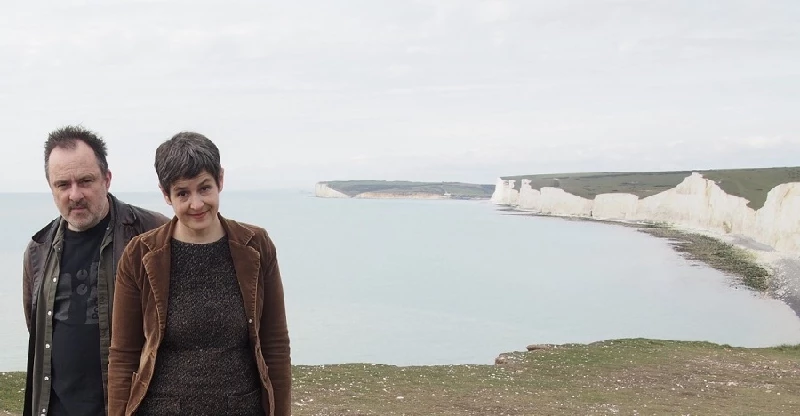
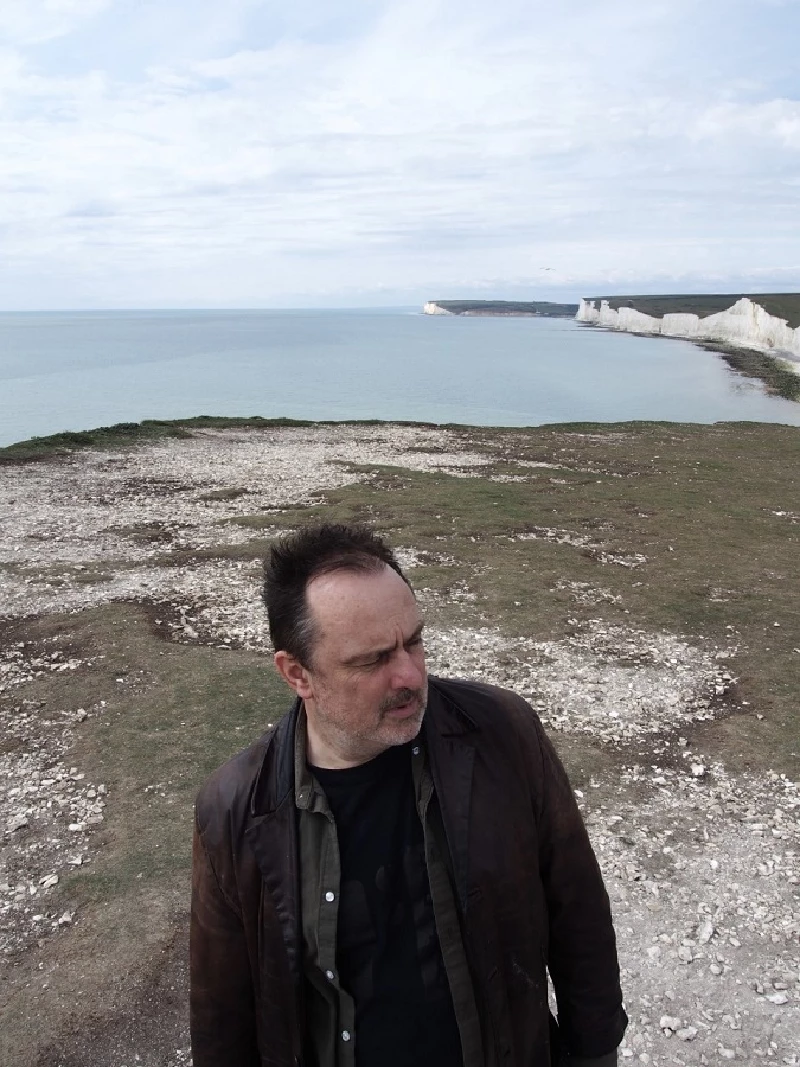
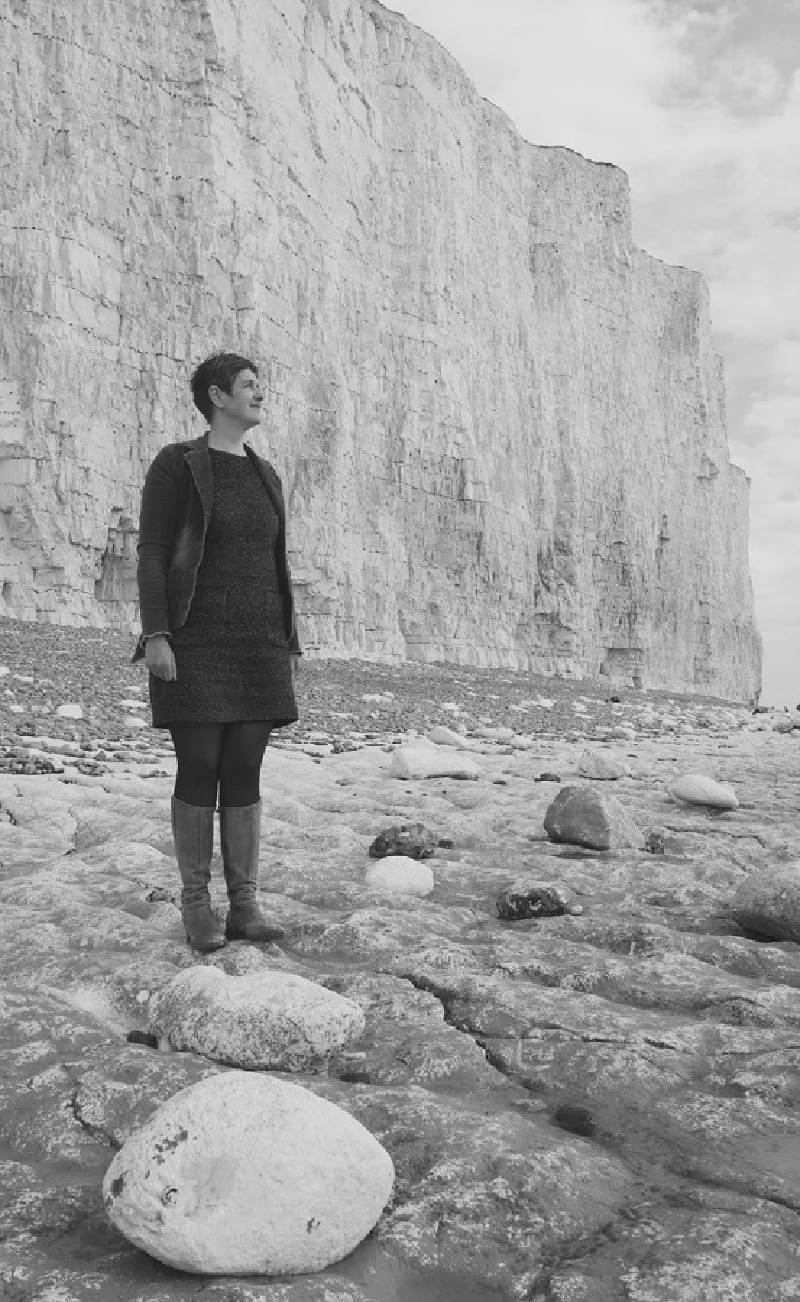
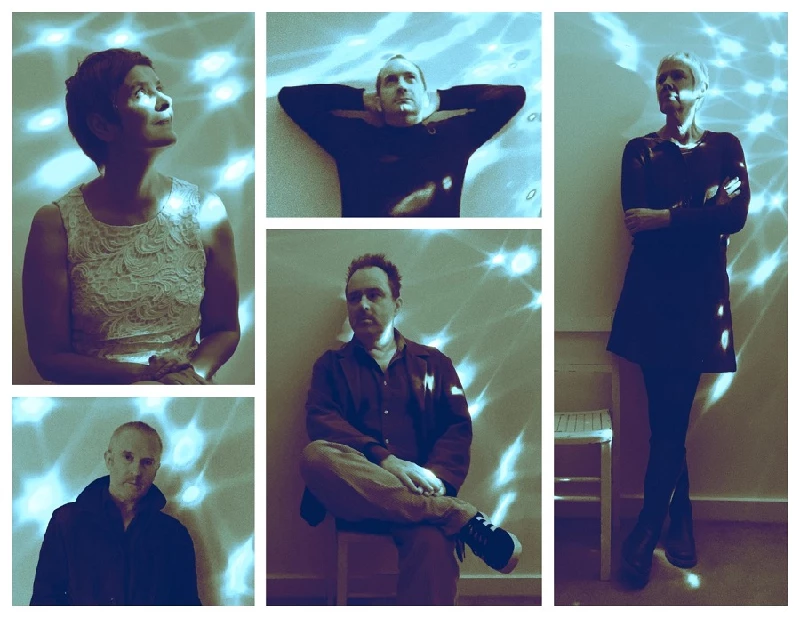
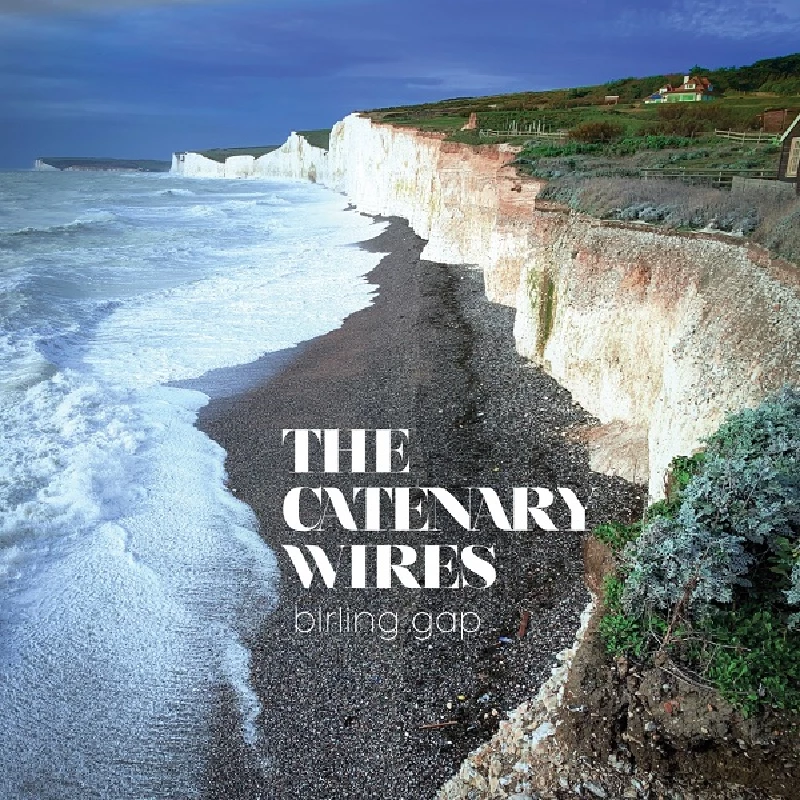
intro
Talulah Gosh, Heavenly and Tender Trap's Amelia Fletcher and Rob Pursey speak to John Clarkson about the expansion of their current band The Catenary Wires from a duo into a five-piece and 'Birling Gap', their just-released third album.
live reviews |
|
Gullivers, Manchester, 19/7/2019 |
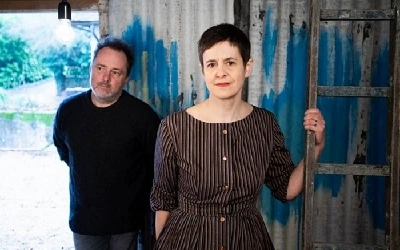
|
| Dixie Ernill finds indie veterans the Catenary Wires still cutting it live at Gullivers in Manchester. |
soundcloud
reviews |
|
Red Red Skies (2015) |
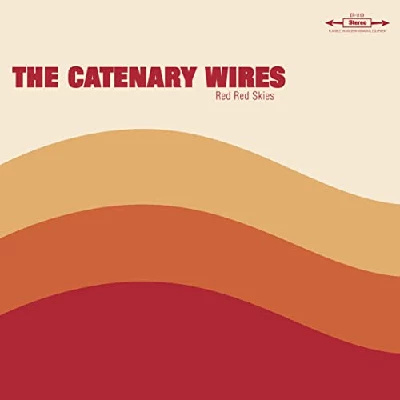
|
| Acoustic and heartfelt debut album from Catenary Waves, the new band of Talulah Gosh, Heavenly and Tender Trap's Amelia Fletcher and Rob Pursey |
most viewed articles
current edition
Carl Ewens - David Bowie 1964 to 1982 On Track: Every Album, Every SongArmory Show - Interview with Richard Jobson
John McKay - Interview
Colin Blunstone - Thalia Hall, Chicago, 16/7/2025
Bathers - Photoscapes 1
Billie Eilish - O2 Arena, London, 10/7/2025
Loft - Interview
Visor Fest - Valencia, Spain, 26/9/2025...27/9/2025
Sir Tim Rice - Interview
Robert Forster - Interview
previous editions
Heavenly - P.U.N.K. Girl EPManic Street Preachers - (Gig of a Lifetime) Millennium Stadium, Cardiff, December 1999
Beautiful South - Ten Songs That Made Me Love...
Peter Perrett - In Dreams Begin Responsibilities Interview Part One
Boomtown Rats - Ten Songs That Made Me Love....
Oasis - Oasis, Earl's Court, London, 1995
Coldplay - Wembley Arena. London, 16/8/2022
Trudie Myerscough-Harris - Interview
Pixies - Ten Songs That Made Me Love...
Prolapse - Interview
most viewed reviews
current edition
Davey Woodward - Mumbo in the JumboSick Man of Europe - The Sick Man of Europe
Lucy Spraggan - Other Sides of the Moon
Blueboy - 2
Amy Macdonald - Is This What You've Been Waiting For?
Bush - I Beat Loneliness
Suzanne Vega - Flying With Angels
Phew, Erika Kobayashi,, Dieter Moebius - Radium Girls
Alice Cooper - The Revenge of Alice Cooper
Cynthia Erivo - I Forgive You
Pennyblackmusic Regular Contributors
Adrian Janes
Amanda J. Window
Andrew Twambley
Anthony Dhanendran
Benjamin Howarth
Cila Warncke
Daniel Cressey
Darren Aston
Dastardly
Dave Goodwin
Denzil Watson
Dominic B. Simpson
Eoghan Lyng
Fiona Hutchings
Harry Sherriff
Helen Tipping
Jamie Rowland
John Clarkson
Julie Cruickshank
Kimberly Bright
Lisa Torem
Maarten Schiethart